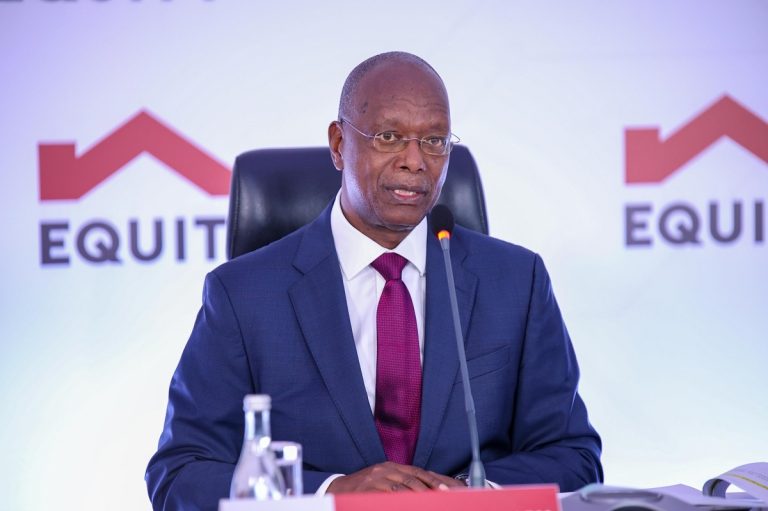Equity Group Holdings has received shareholder approval to establish a representative office in the United Arab Emirates, making it the first Kenyan bank to gain a foothold in the Middle East, subject to regulatory approvals.
During the company’s Annual General Meeting on 25 June, shareholders unanimously endorsed the plan to open the Equity Bank UAE office. The move aligns with Equity’s broader strategy to deepen partnerships, promote cross-border banking, and support its extensive East African network.
“The establishment of a Representative Office in the UAE marks a strategic step in deepening regional and global connectivity. With our shareholders’ continued trust, we are confident in our ability to drive meaningful transformation, sustainable development, and long-term value creation across the continent,” said Prof. Isaac Macharia, Chairman of Equity Group Holdings Plc.
The UAE serves as a vital global hub connecting Africa, Asia, and Europe, offering financial infrastructures and a cosmopolitan business environment. Development in the country extends far beyond its high-profile projects.
The physical infrastructure has undergone significant transformation, with the establishment of dedicated industrial zones, commercial hubs, free trade areas, and expansive mixed-use developments aimed at boosting tourism and dramatically expanding retail and office space. Additionally, liberalized real estate and property laws have fueled unprecedented growth in the property sector.
Equity Group Holding’s decision to establish a Equity Bank UAE office is seen as a strategic move aimed at strengthening the bank’s regional and international presence by facilitating trade and investment flows between East Africa and the Gulf region, offering tailored wealth management and diaspora banking services to Kenyans and other Africans living in the UAE, and creating new opportunities for partnerships with both regional and global financial institutions.
Equity Group CEO James Mwangi, recognised for steered the bank’s growth from microfinance to a multinational entity with assets valued at around US$13 billion, said: “This is a natural extension of our mission to enable Africa’s transformation through inclusive finance”.
The UAE presence will allow Equity to serve its existing clientele, including diaspora communities and corporate investors, with greater ease. At the same time, it lays the foundation for international transfers, trade facilitation, foreign direct investment, and remittance channels. Analysts anticipate improved access to treasury and trade solutions, which could galvanise intra‑Africa commerce.
Equity Group, established in 1984 as Equity Building Society, has one of the region’s most extensive footprints with over 390 branches across six countries: Kenya, Uganda, Tanzania, Rwanda, South Sudan, and DR Congo. It has steadily positioned itself as a pan‑African powerhouse under its “transformative” finance mandate.
The UAE office also dovetails into Equity’s broader ambition of entering new frontier markets, following its earlier decision to open a representative office in Ethiopia. The strategic goal: expand cross‑border financial inclusion and support intra‑African trade.
While largely applauded, the move into the UAE carries regulatory and reputational challenges. The UAE’s stringent banking oversight will require Equity to meet high compliance standards in areas such as anti‑money laundering and Know‑Your‑Customer (KYC) protocols. Moreover, success will hinge on the bank’s ability to differentiate its services amid well‑entrenched global and regional competitors.
Kenyan banking sources view this expansion as a potential catalyst for other East African banks to follow. If successful, Equity Bank UAE office could become a blueprint for regional financial integration, enabling swifter cross‑border payments, diaspora banking products, and international trade corridors.
The United Arab Emirates, home to approximately 10.08 million people—88.1% of whom are foreigners—is the second-largest economy in the Arab world after Saudi Arabia. It is also one of the world’s leading financial centres, known for its vibrant real estate market, business-friendly government, and low tax environment.
Lending growth at UAE banks rated by Fitch slowed to 1.7% in the fourth quarter of 2024, down from 3.3% in the previous quarter, according to Fitch Ratings. Despite the quarterly dip, full-year lending expanded by a robust 11%, up from 7.7% in 2023. UAE banks also posted record-high profits for the year, achieving a return on average equity (ROAE) of 19.1%.
Do you have any story or press releases you want to share? Send tips to editor@envestreetfinancial.com
Follow us on Twitter, Facebook, or LinkedIn to ensure you don’t miss out on any

